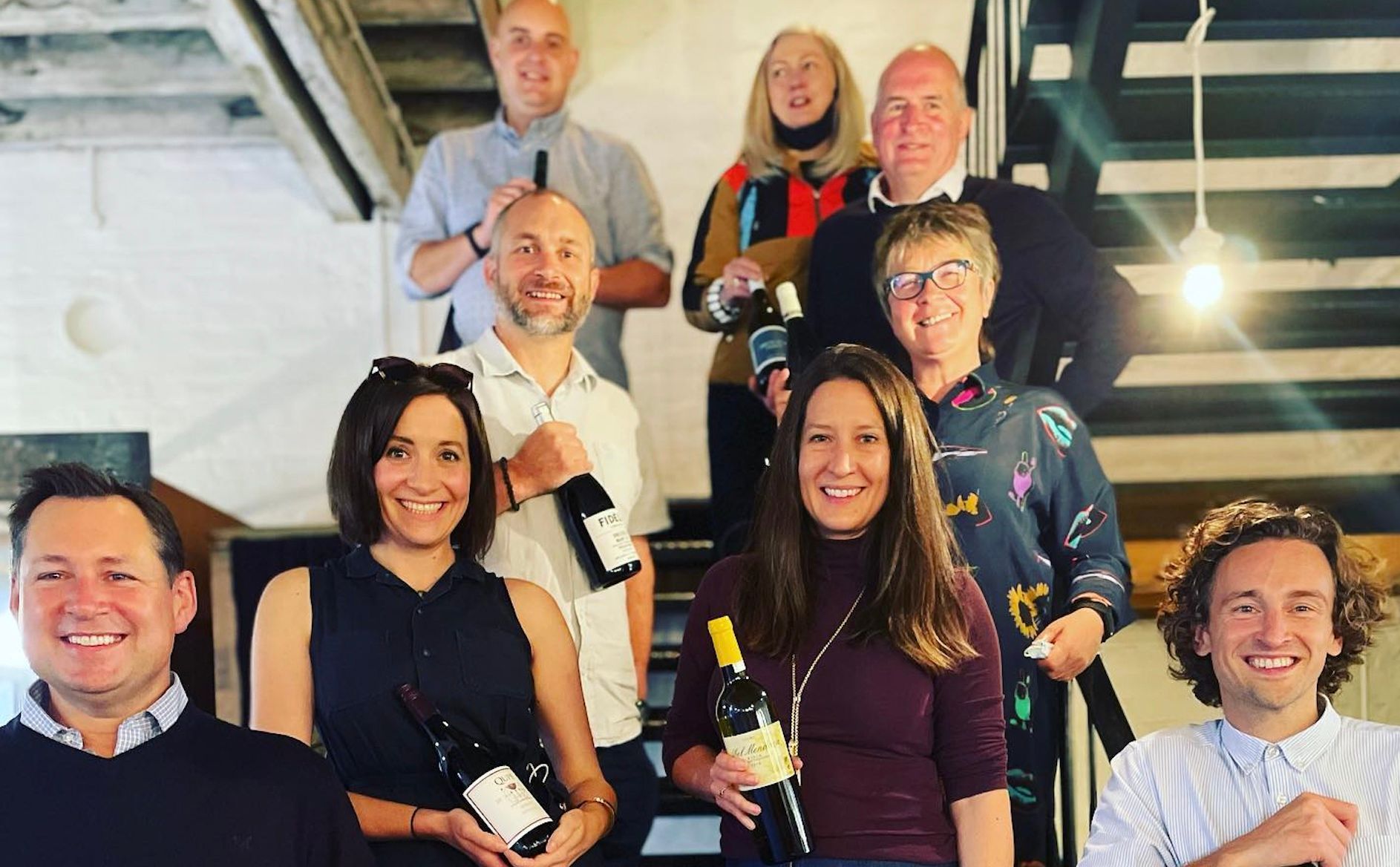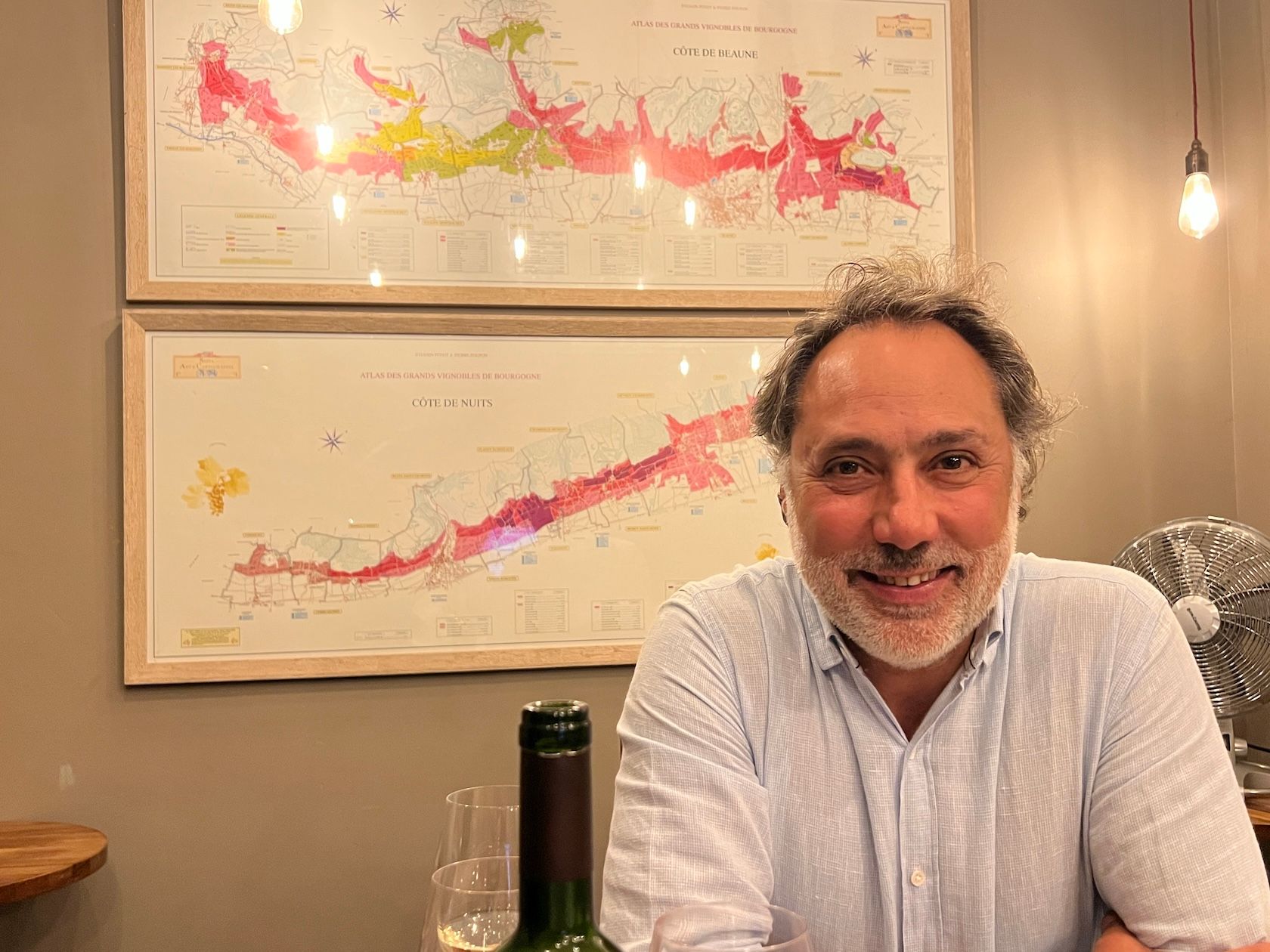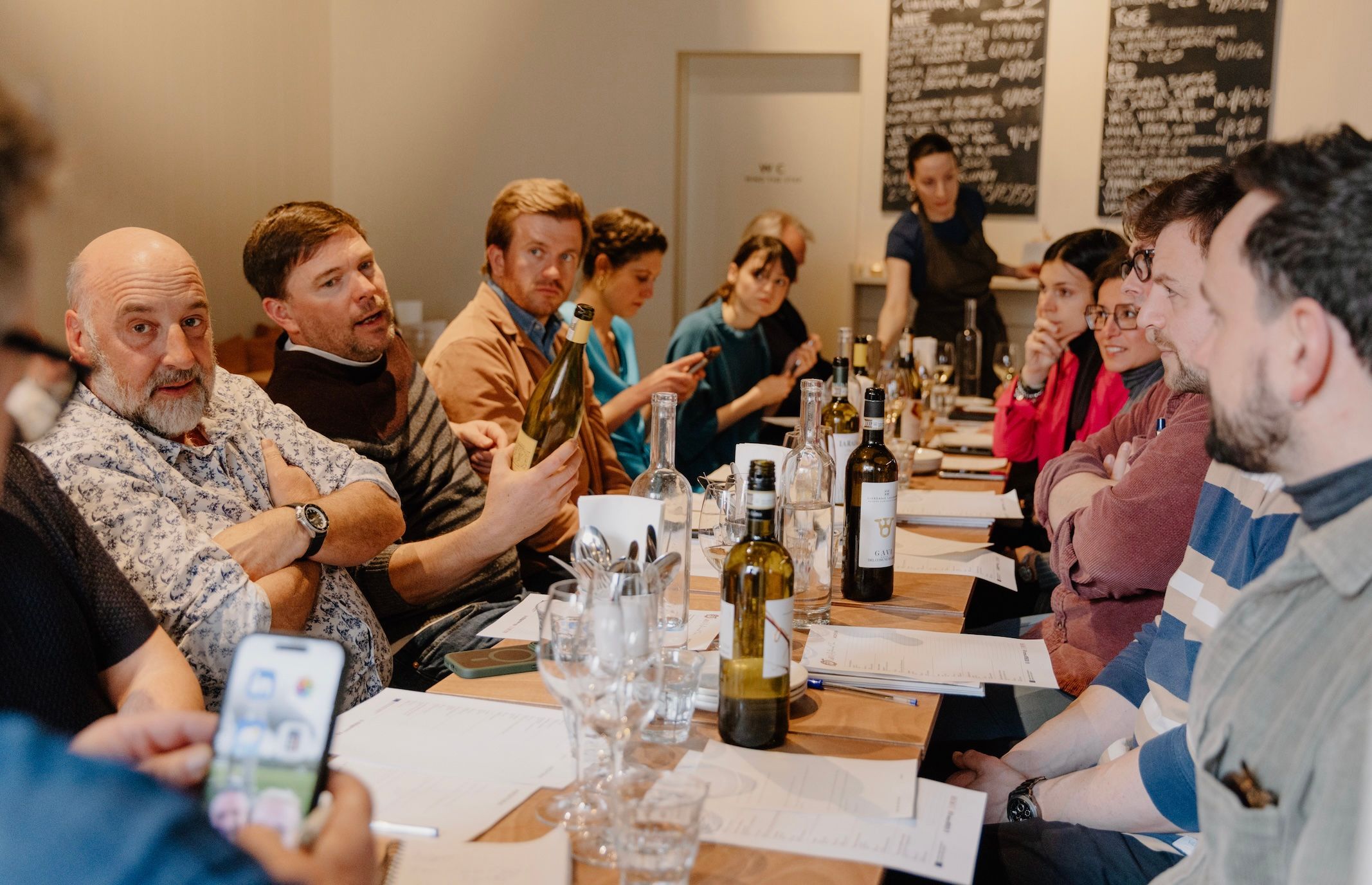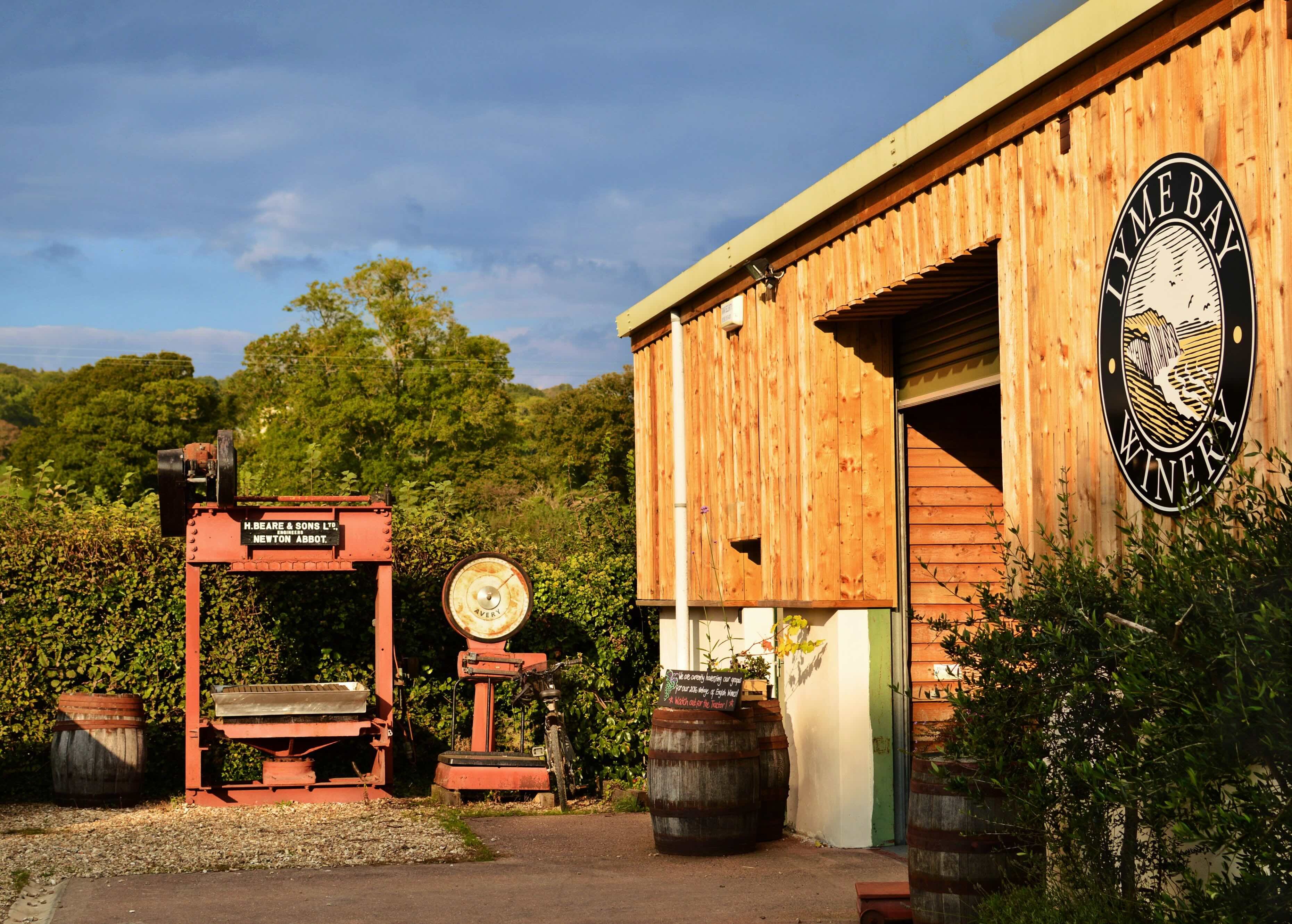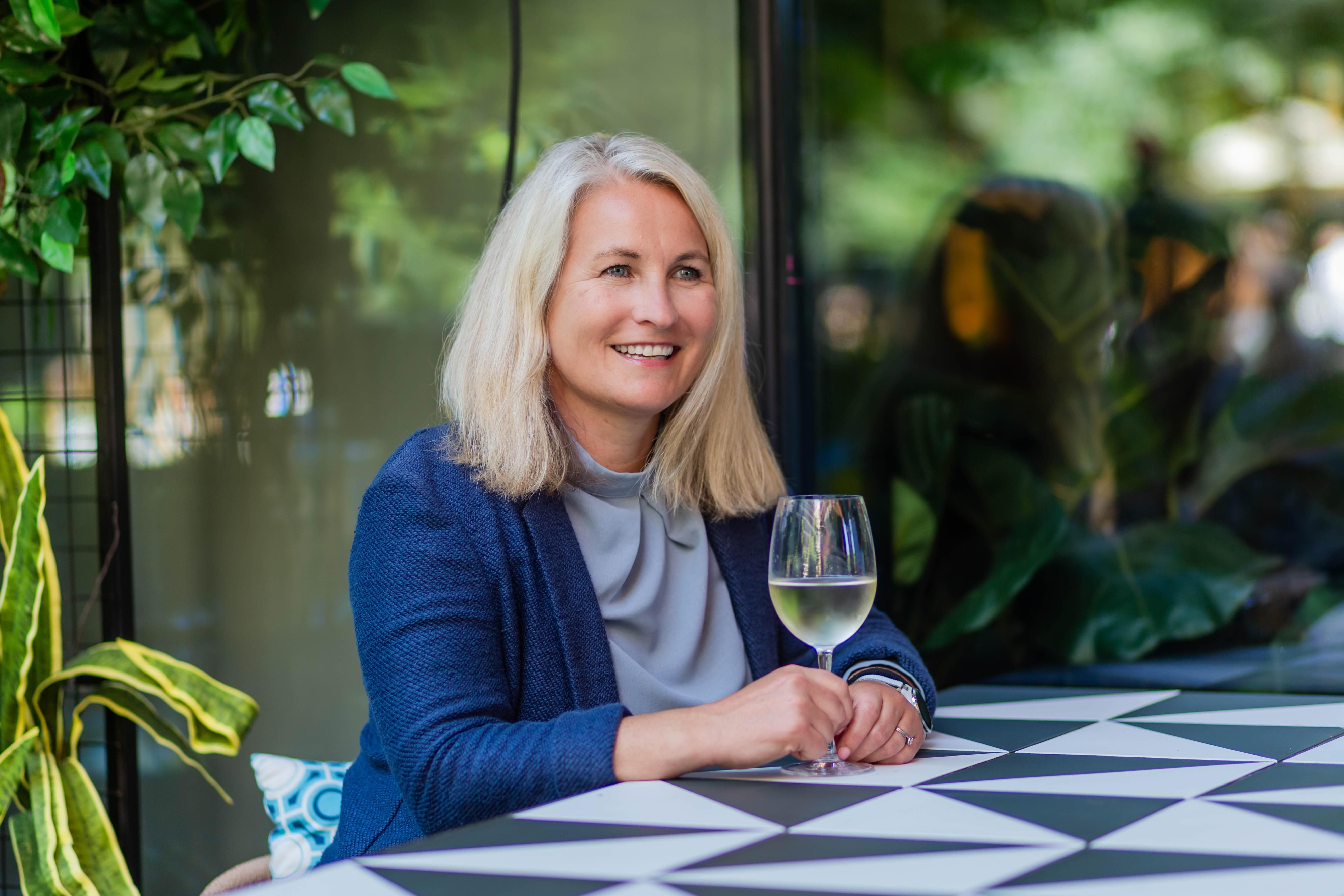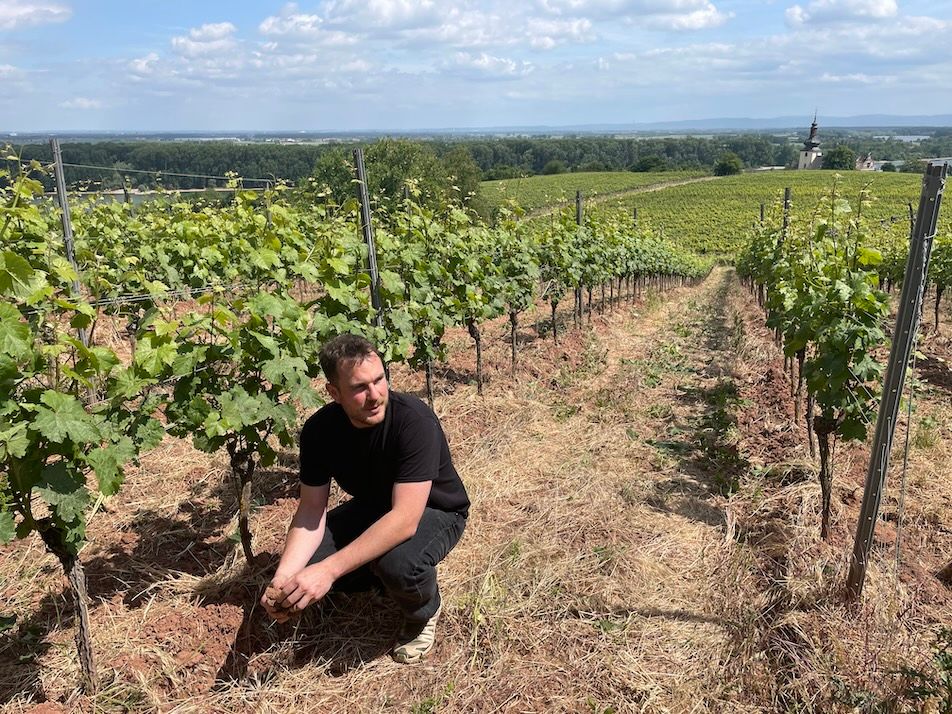Wine businesses might talk about the need to be more sustainable, but that is often easier said than done. To be truly effective you need to make sure the whole company is involved, says Alliance Wine’s sustainability manager, Marta Juega Rivera.
Sustainability is clearly a very big issue – when Alliance Wine talks about tackling sustainability in its company what aspects is it referring to?
Everything really. We understand that sustainability is a tool that can be used to generate a positive impact in the wine industry. To do that we have to take into consideration the triple balance between people, planet, and profit; and we are being guided by the framework for Sustainable Development set out by the United Nations.
To be clear the ‘profit’ aspect is the economic impact comes from the wine and services that we offer to our customers, and eventually the wine consuming public. So we are focusing on gaining a deeper understanding of current challenges around that to be more sustainable. We want to look at it holistically and are keen to use innovation wherever we can to solve these problems.
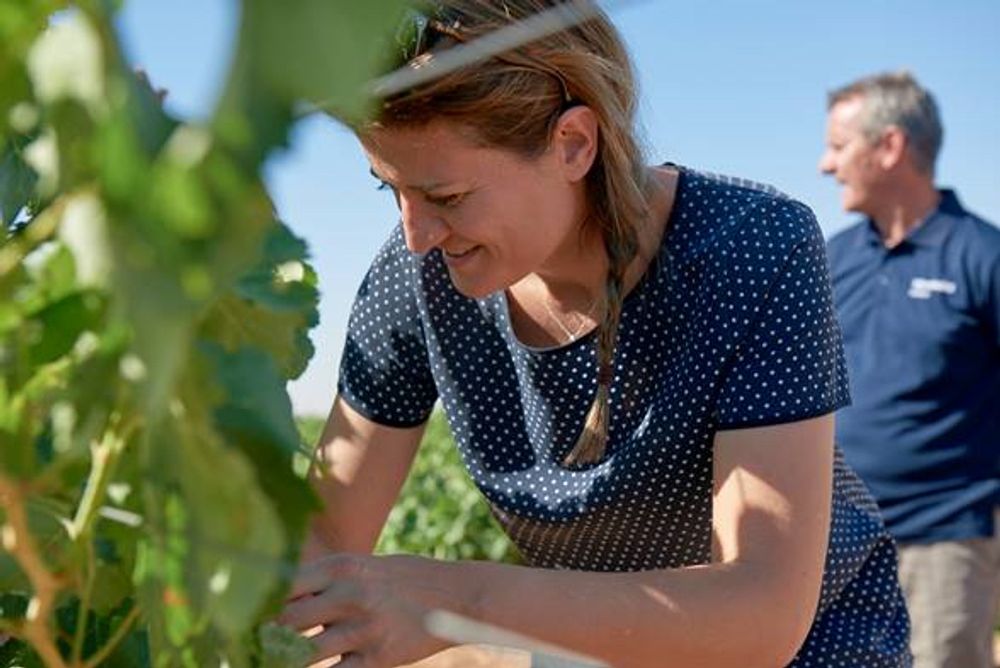
Marta Juega Rivera’s Alliance Wine’s first dedicated sustainability manager
Fundamentally, we want to use sustainability to make all our business practices more effective: stop focusing on doing “less bad” and rather aim to get things right from the start.
What do you as your main responsibilities when it comes to managing sustainability as a company?
As Alliance’s sustainability manager, I see myself as the strategist who needs to create and guide the business in order to implement sustainability properly within the company.
To begin with I concentrated on an internal analysis of the company and an external analysis of the wine trade. This has allowed me to become more familiar with the ins and outs of Alliance Wine’s business model, culture and vision. It gives me a clear understanding of the environmental, social, and economic challenges we face and also that of the wine trade too.
I carried out a SWOT analysis, after which I aligned the sustainability goals identified with the existing business strategy of the company. We created objectives for each department and team, then folded them in to form part of our core business model. Creating something completely integrated, and so our sustainability strategy was born.
Currently my responsibilities are centred around the execution of this strategy. This is quite a challenge with a complex, multi-channel business like Alliance. So to help I created working groups to take on specific objectives. These groups are comprised of colleagues from different departments to help ensure we have diverse viewpoints to make the most of the knowledge across the business.
I guide the progress of each group establishing the objectives, resources, timings and provide technical support. These are small innovation groups, really, that are going to help me find solutions to our various environmental, social and economic challenges.
How do you break that down in the business to make that effective and practical so that all parts of the company are involved?
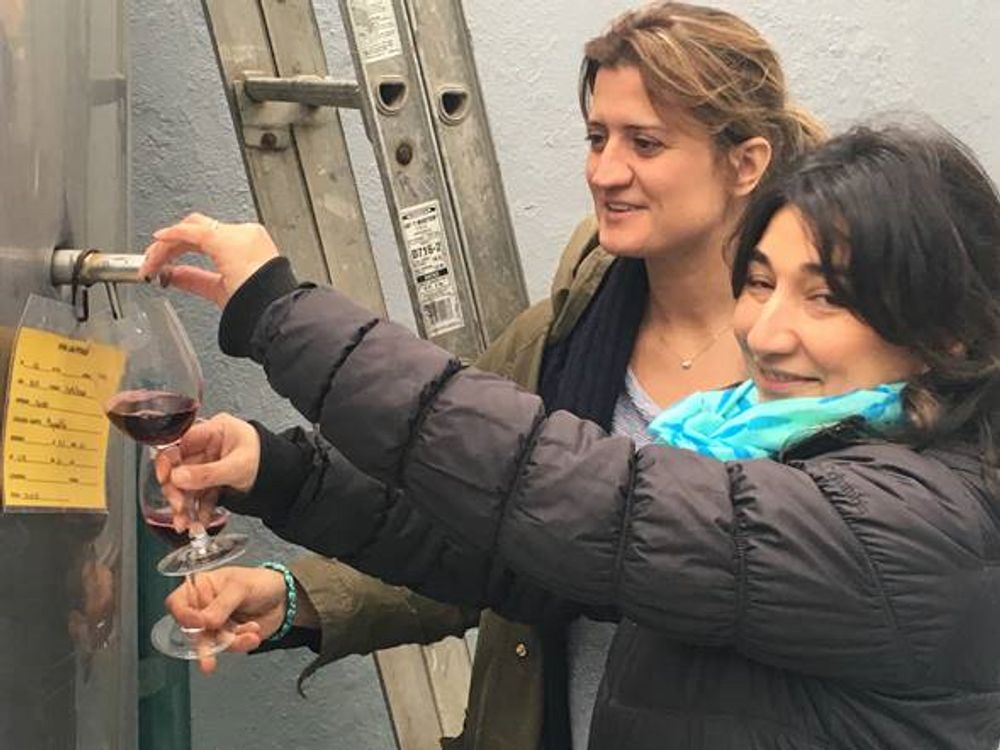
Marta Juega Rivera
By creating working groups with each one responsible for one specific objective in our sustainability strategy we are tackling the overall challenge in manageable bites.
This system allows me not only to gain access to a significant amount of information quicker than I could otherwise, but also implement a holistic approach to the culture of the business by getting colleagues from different departments to understand the direct effects of their activities on other departments and also the wider wine trade.
I am proud to say that every single working group is doing an amazing job, which is already generating a positive change in the culture of the company.
Any particular projects you would like to tell us about?
There is one specific group that is focusing on the topic of responsible consumption. This is a difficult area in the wine industry. We are all aware of the importance of correctly communicating the harmful effects of any alcoholic drink: do not overuse, drink responsibly, etc. When we started this project, we had a clear vision in mind which was in line with the ‘premiumisation’ trend within the wine trade: ‘drink less, but better’.
This working group is creating a clear policy with diverse initiatives centred not only around responsible drinking, but also around educating society on other responsible practices. These include the importance of reusing and recycling, the positive messages around enjoying food and wine together, and other information to promote responsible and safe behaviours.
Is that the key to make this as a company issue rather than down to one person?
Yes, that is essential. A holistic form of thinking is necessary, and needs to be integrated into the company culture. First we need to gain a deeper understanding of the challenges that we are facing across the business as a whole, and then find solutions to them by creating products and services that work for the long term.
There is a book by Donella Meadows called “Thinking in Systems”, in which this concept is clearly explained. Guidance like this is really useful when tackling such a large and diverse challenge, which can feel overwhelming otherwise.
That said you are the sustainability manager – how did you move into that role?
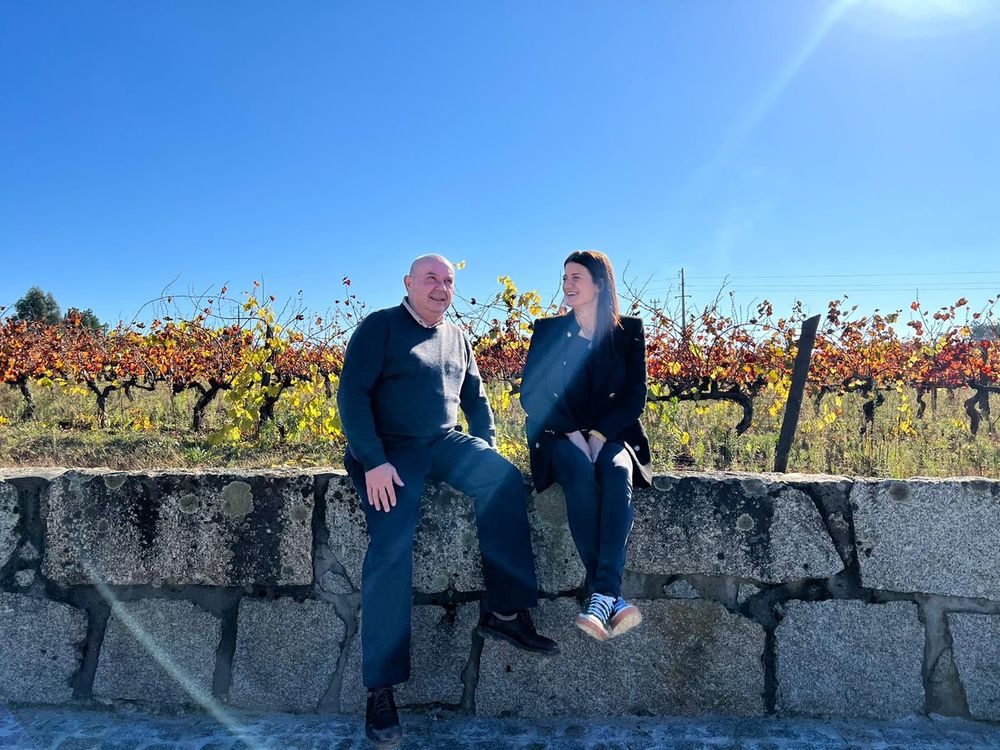
Marta Juega Rivera and one of Alliance Wine’s wine buyers, Paul Shinnie, on a trip to the Douro
In 2018, I spent some time reflecting on my professional career. I consider myself quite determined and passionate about everything I do, but when I looked at my career as a whole, I realised I was losing this passion. I wasn’t achieving my professional desire: working on making the wine trade a better industry by protecting what makes the wine industry unique – our diversity and different wine regions.
So, I packed my bags and headed to California. I spent three years learning about sustainability in the wine industry. California is a pioneer in sustainability in general and specifically in the wine trade.
I studied an MBA in Wine Business at Sonoma State University with a specific focus on the area of innovation and sustainability. When I had gained all the required experience I came back to Europe and “convinced” Fergal Tynan (chief executive of Alliance Wine) to start this project together.
What are the key objectives of your position and how do you go about achieving them?
We’ve established three main categories – environmental; social; and products and services – which are the main sources of economic income for us.
For the environment, we have started to focus on measuring our emissions properly and then will establish how to reduce them. Also waste management is key, looking to significantly reduce the amount of waste at our head office and warehouse, as well as elsewhere. Mainly we aim to do this by maximising all recycling activities at every point. We also had an energy assessment audit done to guide us on how to reduce our usage and move towards using more renewable energy in the future.
With suppliers we are focusing on promoting and encouraging wineries to adopt more sustainable production practices. We are also carrying out analyses with our key suppliers to identify their biggest environmental challenges and work together to establish ways to help overcome them. We hope these will set standards for future partner suppliers to aspire to and be a buying criterion for us.
From a social point of view, we realise people are the centre of any sustainability strategy. So we are really focusing on the wellbeing of our employees. Not to mention our customers and all third parties we interact with. Targeting objectives around welfare and personal development by creating schemes like a volunteering program for colleagues, an unique responsible drinking policy standard, and establishing initiatives promoting leadership among women within the trade are some current projects.
Last, but not least are our own products and services. We are working on an eco-design policy for all our own production and own wineries’ products. We want to streamline our internal processes to be more effective and increase the quality at the same time as their sustainability. Innovation and thinking in new ways is paramount to offer real solutions to the challenges that confront us.
What are your immediate, mid-term and long-term goals to tackle sustainability?
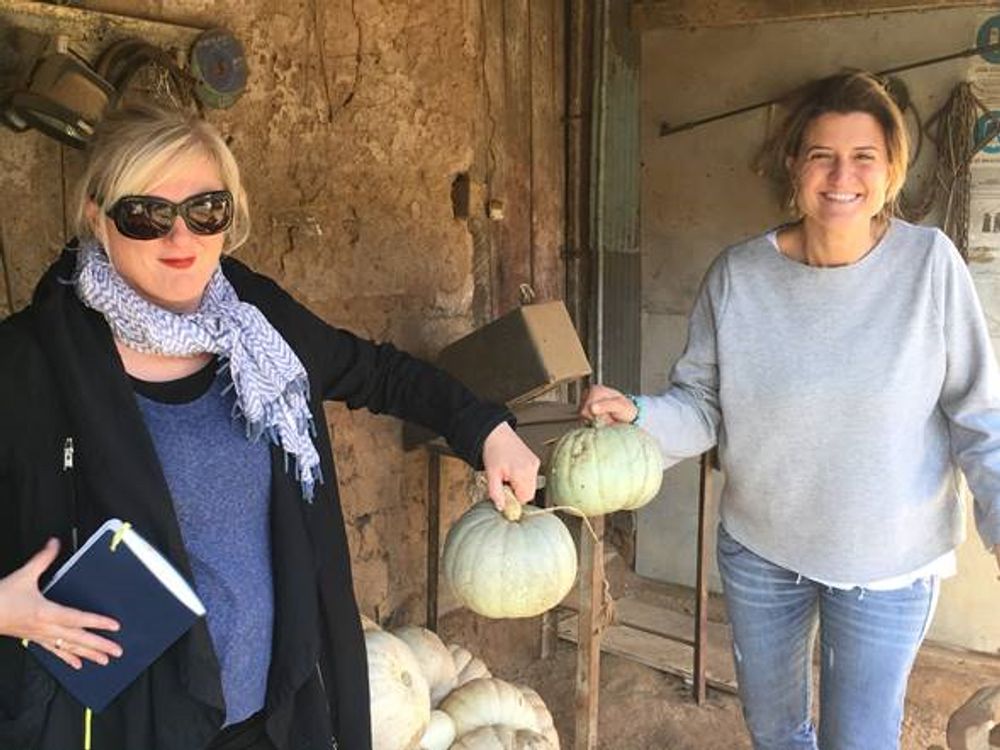
Making sure its suppliers are as sustainable as possible is also key for Alliance Wine
To start with we are committed to instilling cultural change in the business, creating solid data collection from which we can generate a starting point to improve from. We also want to have a comprehensive eco-design policy up and running. Finally, we are keen to seek out partners to work with collaboratively to achieve our self-set objectives, like the volunteering program.
Further off we want to reductions our emissions, prioritise fuel-efficient and electric options for our transport needs to try to achieve a 20% reduction. Then start up a renewable energy usage program, establish a well-being and development project for employees and focus on a programme to promote leadership among women in the wine trade.
Overall, we are aiming to be a zero waste business, and fully sustainable across all functions and aspects of the business. This is a long term goal and will be a long journey to get there, but we can do it.
Is recording, measuring, and constantly analysing your performance a key part of this?
Yes, this is essential: You can’t control what you don’t measure. This is probably the first concept I learnt from my teacher Julien Gervreau at Sonoma State University. He was the former vice president of sustainability at Jackson Family in California.
On our journey we are in what is called an ‘emerging phase’ in which we need to create data collection systems that will allow us to establish starting points, baselines and quantifiable targets and KPIs for our objectives. This will help shape our overall plan and guide the business.
Do you look at other companies/ sectors for inspiration on how to tackle sustainability?
Yes, of course. I look at other companies’ sustainability strategies not only to do a benchmarking exercise, but also with thoughts on collaboration to tackle problems together in the future. It is important to analyse other companies’ strategies to ensure we do not miss any important challenges or considerations. If we work together and move in the same direction then we all have a better chance of being successful.
What excites and interests you most about your role?
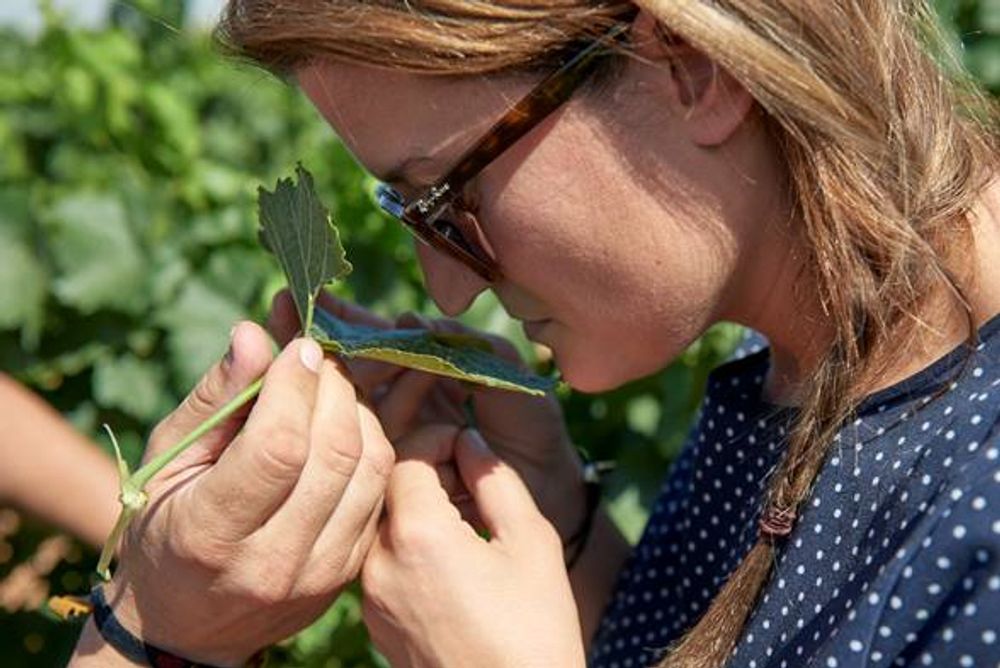
Alliance’s sustainability strategy is broken down into small bites so that the whole team feel like they can make a difference
It is not just about making wine, which is an amazing job in itself, but now it’s about being part of something bigger. Having a purpose with a clear vision and goal. Sustainability also allows us to enfold innovation into the culture and help colleagues think outside the box and encourage collaboration across the business. That is all very exciting.
I often say to Fergal that giving employees a purpose and making them feel that they are part of something big, helps people feel valued, part of something worthwhile and as result creates loyalty and commitment. It’s a virtuous circle.
What do you find challenging and frustrating?
Sustainability is all about people, so it requires education and motivation. You always find people who are difficult to convince and do not see the benefit. At the end of the day, the benefits of any sustainability strategy are not only economic, and so not a priority for some people.
Also like any new strategy that introduces a culture change, it requires some time to embed. Things are easier and quick to change, but people aren’t. They are not as adaptable and this means sometimes things take longer, but it’s necessary to take that time.
Finally, working with all these working groups requires a high level of energy, and I am the one that needs to keep all those plates spinning, which can be exhausting. You need to keep things fresh and be enthusiastic to keep the momentum going.
Anything else to say?
We aren’t the first ones on this journey, but we are approaching it with a transparent and humble attitude. We have common challenges to deal with that extend across the wine trade, but also right across agriculture. For us, we have to make a positive difference with whatever we put in place. We have focused so far on listening intently and really looking to understand what issues really need solutions. Now we are working on offering these solutions. It’s going to be a long journey, but a good one.
Alliance Wine Tastings
- February 28: 10am-5pm. Summerhall, The Dissection Room, Edinburgh EH9 1PL.
- March 2, 10am-5pm. The Crypt, St Martin-in-the-fields, Trafalgar Square, London, WC2N 4JJ.
- To attend the London tasting please register here.
- Alliance Wine are a partner supplier to The Buyer. You can find our more about their business here.
